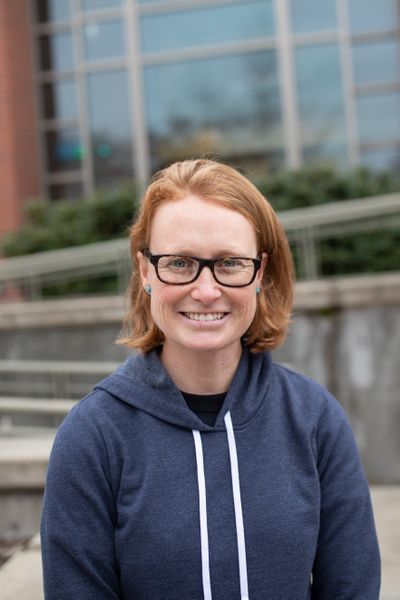This column reflects the opinion of the writer. Learn about the differences between a news story and an opinion column.
Faith and Values: The first Buddhist principle, abstaining from taking life, meshes with vegetarian lifestyle

I can still remember coming home from middle school one afternoon to find a note from my mom telling me to prep the whole chicken that was thawing in the kitchen sink. I immediately called her at work. She explained I needed to reach into the cavity and pull out all the parts inside – the gizzard, the heart, the liver and other slimy things.
With tears streaming down my face, I did as I was told.
I wasn’t meant to be a meat eater.
I didn’t know much about vegetarianism, though, until I started working as a reporter in New England and began writing about the Hindu community there. They taught me about ahimsa, which is the ancient principle of nonviolence. Naturally, the virtue includes a strong commitment to vegetarianism. It’s a tenet practiced by Jains and Buddhists as well.
To the Hindus I spoke to, the vegetarian diet was a spiritual practice, a way to show compassion toward all beings.
This resonated with me, prompting me to give up meat 13 years ago.
So when I became a Buddhist a few years later, taking the first Buddhist precept was an easy one.
The first Buddhist principle is to abstain from taking life (do no harm).
“Aware of the suffering caused by the destruction of life, I undertake to cultivate compassion and learn ways to protect the lives of people, animals, plants, and minerals,” the principle says. “I am determined not to kill, not to let others kill, and not to condone any act of killing in the world, in my thinking, and in my way of life.”
The Buddha taught we should show compassion to all sentient beings, not just humans.
Initially it reminded me of the biblical commandment, “Thou shalt not kill,” which tended to focus solely on not killing human beings. Buddhism too, says not to murder, but breaks it down further, explaining that protecting human life is only possible by also protecting anything that lives.
It’s a teaching on ecology, on protecting the earth.
Buddhism explains that we need nonhuman elements to survive: plants, minerals, earth, clouds and sun. Therefore, if the environment is destroyed, humans will be too.
Also, we can have an impact on other sentient and nonsentient beings.
By actively showing loving-kindness (metta) to all creatures, we can become a positive force that counters malice.
As the editors at Buddho explained, “If you do this, other beings around you do not have to worry anymore. You will become a safe haven, a beacon of peace for all beings, completely non-violent.”
Achieving this starts within.
My family used to call me a “hot head.” I was quick to anger and would express it by balling my fists, gritting my teeth, yelling and sometimes even throwing things or punching walls. I can hardly picture that old me anymore.
My spiritual practice has helped me find tranquility.
Even though I’m intentional about taming my anger and practicing nonviolence, I’m realistic in knowing I still take lives. There are dead bugs on my windshield. I feed my dog meat. I kill insects when I till the garden. We cannot be completely nonviolent, but being mindful of moving in that direction, to me, is sacred.
Zen Master Thich Nhat Hanh wrote, “Our real enemy is forgetfulness. If we nourish mindfulness every day and water the seeds of peace in ourselves and those around us, we become alive, and we can help ourselves and others realize peace and compassion.”
So I will pick up the earthworm stuck on the pavement and put it safely in the mud, and I will stick with tofu because this practice has truly changed my life for the better, and hopefully has impacted those around me too.
Next up: abstaining from taking what is not given.
Tracy Simmons, a longtime religion reporter, is a Washington State University scholarly assistant professor and the editor of SpokaneFāVS, a website dedicated to covering faith, ethics and values in the Spokane region.